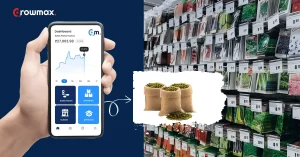The future of India lies in its villages. When Gandhi said this, he may not have been predicting the 21st-century retail market, but the words couldn’t be more accurate.
Today, the rural retail market is expanding at a rapid pace. According to Nielsen, consumption growth in rural areas is 1.5 times the rate in urban areas.
The 21st-century rural population is more informed, capable, and well-off than their predecessors. They demand the products that are available in the cities and are willing to pay to consume them.
This emerging demand is a massive opportunity for retail brands to tap. Many, like Dabur and Hindustan Unilever, have already succeeded, others have failed, and many are striving.
Therefore, we looked at several companies to discover the biggest mistakes that caused them to fail in their rural invasion.
This article discusses five core mistakes you should avoid to invade rural space successfully. Knowing these will help your business avoid the risks and failure.
Here’s what failed brands did not do:
1. Failed Brands Did Not Optimize Themselves As Per The New Customers
Rural customers are different from urban ones. They differ in demographic, psychographic, and behavioral variables.
Rural customers are homogeneous and heavily influenced by culture. Businesses need to understand their personas and optimize their products, marketing, and distribution accordingly.
For example, culture and familiarity is a significant factor that drives the buying behavior of the suburban crowd. Therefore, when Dabur entered the rural markets, it collaborated with regional influencers and celebrities to promote its products. It helped them better connect with the rural audience and leave an impression on them.
Failing brands mainly followed the “One Size Fits All Strategy” and did not optimize the strategy, distribution, or marketing for different shoppers.
2. Failed Brands Did Not Forge Strong Relationships With Partners
Forging tight bonds with key channel partners is crucial to succeeding in the rural markets. Retailers must ensure that all the local partners benefit and derive benefits from the partnership.
These bonds could be both financial and non-financial.
They can either give the local partners healthy margins. Or they can make overall sales easier by optimizing inventory and supplies.
In many cases, all that is needed to forge strong relationships is mutual understanding, transparent processes, and a free flow of information.
3. Failed Brands Did Not Leverage Technology
Using technology is one thing. Leveraging it is another.
Successful brands do not just use technology; they leverage it to grow their businesses. They use tech to streamline their operations, automate their workflow, and optimize their supply chain.
It helps them outshine their competitors, expand seamlessly, and simplify the complexities of the new market.
One of the essential technologies they use is Sales Force Automation (SFA). The system lets them manage their multi-layered distribution and the matrix of sales teams and SKUs.
Failed brands did not leverage these tools. They relied on traditional methods and ineffective procedures.
Ensure that you don’t make these mistakes. Check out our GrowMax Sales Force Automation solution to learn more about how technology can help you succeed in the rural retail market.
To further transform your business digitally, check out our detailed guide+roadmap on Digital Transformation in Retail.
Releted Blogs :-




